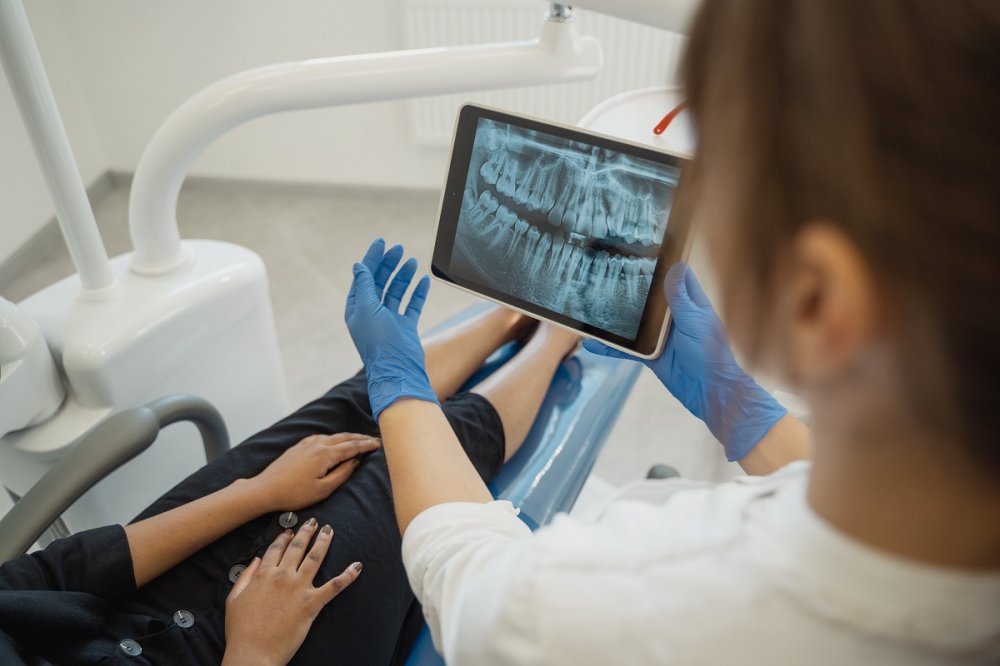Do you remember the last time you visited your dentist? Was it because of oral health issues, or because of other reasons? When you think of an individual's oral health, it is easy to see the importance of personal dental hygiene.
You might be surprised to discover how much oral health and overall health are intertwined. The mouth is more than simply a place where food gets chewed up before being passed through the esophagus into the stomach.
It's important to go for regular dental hygiene visits because oral problems aren't just uncomfortable —they can lead to bigger issues in your life. The issues, if not treated or managed properly, can even affect your mental health.
Poor oral health can cause several serious complications, which is why people need to take the time to maintain their teeth. From bad breath and tooth decay to periodontal disease and gum infections, there are many risks associated with not taking care of one's mouth.
The mouth as a barometer of overall health
The oral cavity is also home to your teeth, gums, tongue, and oral mucosa. And if oral health isn't the same as overall health, it's very close! Since the oral cavity is not separate from the rest of the body, oral health can act as a barometer for general health; when one part of your mouth goes wrong (for instance, you get oral thrush) or develops abnormally (such as with oral cancer), that's often an indication that something more serious has happened inside your body.
Oral infections are linked with several chronic conditions including diabetes and cardiovascular disease. A recent study found overweight people who brush twice daily had higher levels of good cholesterol than overweight people who only brush once every two days. This is just one example of the link between oral health and overall health.
Other oral health issues are also quite prevalent among the elderly, stroke patients, people with mental disabilities, and other groups. The oral cavity is an ideal starting point from which to spread oral infection in these situations because oral tissues have a compromised immune system due to age or conditions such as diabetes.
About 20 percent of all heart-related deaths stem from some kind of oral disease. It's been found that if someone has cardiovascular disease and is seen by a dentist but not a doctor, they're less likely to seek medical treatment for their overall condition than someone who sees both a dentist and a doctor within six months of each other.
Overall health complications caused by poor oral health
Taking care of what goes on with oral health can tell you a lot about what's going on inside your body. If you have gum disease, that means periodontal disease is present and it may mean something else is wrong as well.
This oral-body connection isn't just limited to diseases, either—it also applies to oral conditions such as cavities or oral infections. Healthy gums usually don't bleed when you brush them. If they do, this could be the symptom of more than just an oral issue: It could indicate serious issues like diabetes and high blood pressure (both of which can cause gum problems). It could even be a sign of cancer in the mouth.
Mouths don't always directly "bleed," but the oral-body connection is very powerful. That's why oral health should be taken seriously, to prevent future issues that could lead to pain or serious illness.
Taking care of the mouth
Even oral health professionals such as dental hygienists and dentists recommend taking care of your mouth through a good oral care regimen. This includes brushing twice daily, flossing once daily (or at least three times a week), and limiting sugary food and beverages. Brushing removes plaque and debris from teeth and gums to promote oral health. Flossing helps remove plaque between the teeth that are usually missed during toothbrush sweeps. Limiting sugary foods and drinks gives oral bacteria less fuel for their acidic fires; they produce acids as a result of metabolizing sugars, which can eat away at the enamel on teeth—leaving them rougher than normal after consumption.
Dental health and oral hygiene directly contribute to oral wellness. Good oral hygiene helps prevent cavities, gum disease, oral cancer, bad breath, broken teeth, chipped teeth, and tooth sensitivity…to name a few oral health problems.
Our comprehensive dental care team at Sleep Dentistry Erie is here for you in good times (routine cleanings/checkups) or bad. Dental anxiety or phobia? You can schedule a pain-free sleep dentistry appointment to help your teeth and gums stay healthy while under dental general anesthesia.
We look forward to seeing how our team of experts can support you with all your oral health needs. No matter what challenges arise in our lives — good or bad — Sleep Dentistry is committed to helping patients at their happiest and healthiest! Have any questions about the services we provide? Let us know anytime, day or night!

